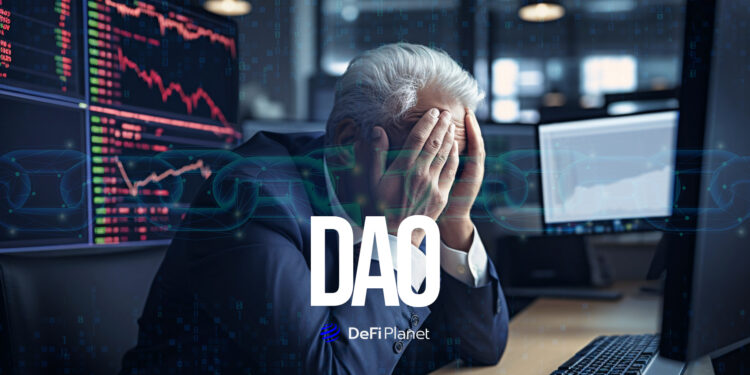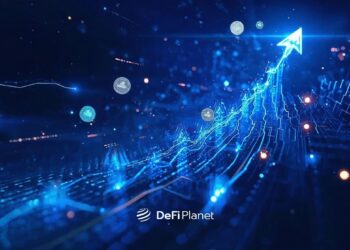The idea of Decentralized Autonomous Organizations (DAOs) sounds like a utopian tech vision—self-governing communities free from centralized control, where decisions are made transparently and democratically.
It’s a compelling concept, but the reality has proven more complex. DAOs got off to a rocky start. The first major experiment, simply called The DAO, launched in 2016 with high hopes—only to be hacked two months later. The fallout was so bad that it triggered Ethereum splitting into two chains: Ethereum (ETH) and Ethereum Classic (ETC). It wasn’t the ideal debut.
Fast forward to today, and DAOs still struggle to live up to their promise. Billy Marcus, the creator of Dogecoin, hasn’t minced words about it. He famously called DAOs “almost universally stupid and doomed,” blaming their failure on short-term greed, overhyped projects, and a lack of real incentives to build anything meaningful. And he may have a point. The dream of decentralization often clashes with practical limitations, raising doubts about whether DAOs can function as truly democratic systems.
So, what’s really going wrong? Why do so many DAOs crumble under their own weight? In this article, we’ll try to examine the core issues that make DAOs prone to failure, and explore whether there’s a way to fix these problems before the dream of decentralized governance fades into obscurity.
What a DAO Should Be
A DAO, in its ideal form, represents the pinnacle of decentralized governance—an autonomous, blockchain-based entity governed by smart contracts rather than centralized leadership. The vision behind DAOs is to enable democratic decision-making, where members vote on proposals based on their token holdings.
Transparency is a fundamental principle, as all financial transactions and governance activities are recorded on the blockchain, allowing anyone to audit them. By eliminating traditional hierarchies, DAOs aim to reduce corruption and inefficiencies, ensuring that power remains in the hands of the community rather than a select few. They also provide a platform for collective innovation, where members can propose, fund, and develop projects without relying on intermediaries.
What’s a Democracy if a Few Control the Votes?
In practice, many DAOs struggle with fundamental governance flaws that threaten their legitimacy and long-term viability.
One of the biggest issues DAOs face is low voter turnout. In theory, governance tokens give every holder a say in the organization’s future, but in reality, participation is often abysmal. Most token holders don’t bother voting, leaving key decisions to a small, active minority. When only a handful of people show up to vote, power naturally becomes centralized, contradicting the very idea of decentralized governance.
Even when DAOs attract voter participation, power tends to concentrate in the hands of the wealthiest token holders. According to Chainalysis, an analysis of ten major DAOs revealed that less than 1% of token holders controlled 90% of the voting power. This means that if just a tiny fraction of the top 1% coordinated, they could easily outvote the remaining 99%.

This level of concentration not only raises concerns about fairness but also discourages smaller holders from engaging, since their votes often feel meaningless.
A perfect example of this imbalance occurred in June 2022, when the DAO governing Solend, a Solana-based lending platform, faced a major crisis. A whale investor had taken on an enormous loan, and as Solana’s price dropped, their position was at risk of liquidation. If the loan was liquidated on the open market, it could have triggered a price crash, sending shockwaves through the Solana ecosystem. In response, the Solend DAO held a vote on whether to take control of the whale’s account and liquidate its position via over-the-counter (OTC) deals instead.
The proposal passed overwhelmingly—over 1.1 million votes in favour versus just 30,000 against. However, there was a catch: more than 1 million of those votes came from a single user with an enormous governance token balance. Without this single voter, the proposal wouldn’t have even reached the 1% participation threshold needed for quorum. The backlash was immediate.
Critics questioned how a so-called decentralized organization could justify seizing control of a user’s funds. Under pressure, Solend held a second vote to overturn the proposal, and the whale investor ultimately managed to unwind their position without catastrophe. But the situation exposed a harsh truth: when power is so concentrated, a DAO can act just as arbitrarily as a centralized institution, undermining the very ideals it was built on.
Beyond low participation and centralization, DAOs are also vulnerable to governance manipulation. Bad actors can exploit the system by acquiring large amounts of tokens to swing votes in their favour, a tactic commonly known as a governance attack. This makes DAOs particularly susceptible to hostile takeovers, where outsiders buy up voting power to push through self-serving proposals.
The Burnout Problem: Why DAOs Lose Steam
Many DAOs launch with great enthusiasm, but sustaining that momentum is a different challenge altogether. Poor financial planning, governance fatigue, and a lack of a clear roadmap often lead to their decline.
DAOs typically rely on treasury funds, but without sustainable revenue models, these resources are quickly depleted. Additionally, active participation in DAO governance demands constant engagement, which can lead to burnout among community members, weakening the very foundation of decentralized decision-making.
A prime example is SushiSwap, once celebrated as a thriving DeFi DAO. Over time, it has faced increasing governance fatigue, with key contributors leaving due to internal conflicts, inadequate incentives, and the relentless pressure of continuous decision-making.
Naïm Boubziz, a former key figure, publicly accused SushiSwap’s leadership of orchestrating a “hostile takeover.” His allegations, primarily directed at SushiSwap’s head chef, Jared Grey, suggest an internal power struggle that threatens the project’s decentralized ethos.
Even the most promising DAOs can succumb to internal strife and collapse without a solid financial strategy, clear governance structures, and sustainable incentives for contributors.
DAO’s legality issues
Despite their promise of decentralization, DAOs operate in a legal no-man’s-land. Most governments have yet to clearly define their legal status, leaving them in a state of regulatory uncertainty. This lack of clarity creates significant risks for participants and makes it difficult for DAOs to interact with traditional financial systems.
Without formal legal recognition, DAOs struggle to sign contracts, hold assets, or enforce agreements, making them vulnerable to legal disputes and financial roadblocks.
A key example of this legal uncertainty is the 2022 lawsuit against Ooki DAO by the U.S. Commodity Futures Trading Commission (CFTC). The CFTC accused Ooki DAO of offering unregistered commodities, challenging the long-held belief that DeFi organizations could operate beyond regulatory reach. This lawsuit set a powerful precedent, proving that DAOs are not immune to legal action. The ruling sent shockwaves through the industry, discouraging participation and raising concerns about future enforcement actions.
Without legal clarity, DAOs risk fines, shutdowns, or restricted operations as global regulators pay closer attention.
Are DAOs a Lost Cause? What Could Make DAOs Work?
Despite their challenges, DAOs aren’t doomed by design. With the right adjustments, they could become more effective. Here are some suggestions of what can be done:
- Better Governance Model
To ensure a more balanced decision-making process within DAOs, the implementation of quadratic voting could be key. This would prevent token whales, or large holders of tokens, from having disproportionate influence over decisions. Additionally, introducing delegate voting systems would allow informed representatives to vote on behalf of the community, ensuring that decision-making is handled by those with the expertise necessary to make well-informed choices.
- Sustainable Funding Mechanisms
DAOs need recurring revenue streams to ensure that they remain financially stable in the long term. One way to generate this kind of income could be charging fees for DAO services or managing its treasury could help generate ongoing income. Furthermore, a hybrid approach that combines traditional funding methods, like venture capital, with DAO-specific fundraising methods could provide a diversified and more reliable source of funding.
- Legal Clarity and Compliance
For DAOs to function effectively, it is essential that they operate within clear legal frameworks. Collaborating with regulators to establish these frameworks could provide much-needed legal clarity. Additionally, where possible, registering DAOs as legal entities, such as Limited Liability Companies (LLCs), could reduce liability risks and provide a more secure legal foundation for the organization.
- Increased Community Engagement
Incentivizing participation is key. Rewarding community members who contribute regularly and engage in decision-making can help maintain a high level of participation. Additionally, creating user-friendly voting mechanisms with intuitive interfaces would make it easier for members to participate in governance, thus ensuring that the community remains engaged and empowered.
In conclusion, the path forward isn’t easy, but if DAOs can learn from past failures and adapt, they might just have a future. Otherwise, Billy Marcus may be right—most DAOs will remain more hype than substance, destined to fade away.
Disclaimer: This article is intended solely for informational purposes and should not be considered trading or investment advice. Nothing herein should be construed as financial, legal, or tax advice. Trading or investing in cryptocurrencies carries a considerable risk of financial loss. Always conduct due diligence.
If you want to read more market analyses like this one, visit DeFi Planet and follow us on Twitter, LinkedIn, Facebook, Instagram, and CoinMarketCap Community.
Take control of your crypto portfolio with MARKETS PRO, DeFi Planet’s suite of analytics tools.”





















